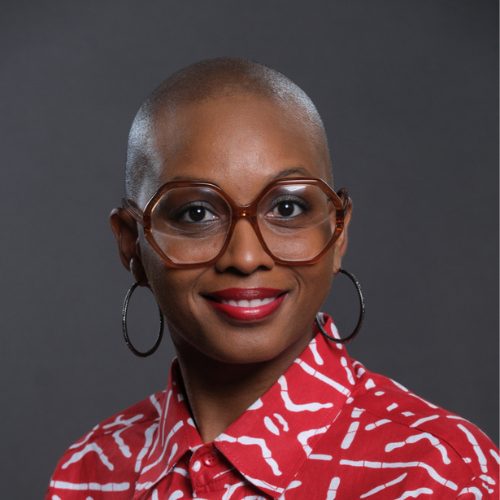Commentary on Ruth 1:1-18
The book of Ruth, especially the first chapter, illustrates a relationship between migration and food insecurity as the narrator opens by noting, “There was a famine in the land”—the determinant of migration for Elimelech, Naomi, and their two sons, Mahlon and Chilion (1:1–2). Consequently, the family moves from Bethlehem to Moab, where seemingly there is sustenance; yet, after they arrive, Elimelech dies (1:3), leaving Naomi widowed.
Also in Moab, Mahlon and Chilion find wives (1:4). Chilion marries Orpah, and Mahlon weds Ruth (4:10). But after about 10 years, Mahlon and Chilion die too (1:5), leaving Naomi a bereaved parent and Orpah and Ruth widowed and childless. Experiences of food insecurity and migration bring these three women together, and they become extended family through marriage. Their familial bond is both strengthened and challenged through widowhood, which is certainly disruptive to a family unit primarily composed of migrants and women who likely depended upon patriarchs for safety, food, and economic security.
The strain and strength of the three women’s relationship is likewise illuminated in the first chapter. Naomi hears that the Lord has had consideration for the people in Judah and has given them food, a pull factor for her to migrate back home. So she sets out to return home with her daughters-in-law, who now become migrants as they leave their ancestral home, Moab. However, as they start to travel, Naomi instructs Orpah and Ruth to return to their mothers’ houses, prays that the Lord grant them security in the houses of their husbands, kisses them, and weeps aloud.
This part of the narrative may shed light on the severe emotional toll that experiences such as food instability, widowhood, and the death of multiple children had on Naomi—particularly male children who undoubtedly would have cared for her after the transition of her spouse. A widow might also receive care from male grandchildren, but her two sons are childless when they die, which may be why Naomi references the process of a Levirate marriage (Deuteronomy 25:5–10) as she mourns the loss of her husband and sons (1:11–13).
Naomi seems as devastated as the land shattered by famine, and hopeless as evidenced by her utterance, “Even if I thought there was hope for me …” (1:12). She continues, “It has been far more bitter for me than for you because the hand of the LORD has turned against me” (1:13). She has lost her husband, sons, livelihood, almost every sense of security and hope.
It seems that Naomi perceives she is without a lifeline, a way out of this difficult situation, because, after all, Orpah and Ruth are also women, widowed, and without children. They all lack financial security and physical protections and provisions afforded by husbands and sons in patriarchal societies. Because Orpah and Ruth did not birth Naomi’s sons’ progeny, the only way Naomi could seemingly benefit socially or economically from her relationship to either of her daughters-in-law was if one married the nearest kin. If they followed her request to remarry outside of the family, she wouldn’t benefit, which is probably why she attempts to send Orpah and Ruth away.
Either way, her actions reflect an attitude of despondency. Perhaps her grief causes her to perceive rejection not only by God but also by her daughters-in-law, though none may be intended.
Undoubtedly, Orpah and Ruth similarly feel the impact of widowhood and food insecurity, which may be exacerbated by their mother-in-law’s grief and attempt to send them away. They weep aloud twice at the command (1:9, 14). First, they both refuse to leave and commit to returning with her to her people (1:10).
But after Naomi’s second command to return, amid such despair and dispiritedness, Orpah does return to her family and ancestral land, while Ruth clings to Naomi, dedicating herself to Naomi’s well-being (1:14). This is evidence of Ruth’s role as Naomi’s caregiver, which explains why Ruth voluntarily migrates. Contemporary migration studies show that women frequently have more care responsibilities or caregiver roles that affect their choices and ability to migrate. As a caregiver, Ruth puts alleviating Naomi’s fragility and economic instability above her own physical, cultural, and economic stability, as evidenced in her popularized vows:
Do not press me to leave you
or to turn back from following you!
Where you go, I will go;
where you lodge, I will lodge;
your people shall be my people,
and your God my God.
Where you die, I will die—
there will I be buried.
May the LORD do thus and so to me,
and more as well,
if even death parts me from you! (1:16–17)
Ruth and Naomi migrate back to Bethlehem, and upon their arrival, women in the town ask, “Is this Naomi?” Perhaps her flesh and physical appearance revealed to them that the body indeed keeps score of the trauma we experience. One might imagine her vulnerable and fragile body exposed the psychological distress of multiple losses (of people and of hope) and of multiple migrations. Maybe the pain was baked into her skin by the sun as she journeyed; maybe it was woven into her DNA and seeped into the marrow of her bones with each step she took.
Naomi voices that God has dealt bitterly with her and instructs the women of Judah to call her “Mara” because she reasons that she went away full, but the Lord brought her back empty. We know she left Judah because of the famine, so it is unlikely she is referencing food satiation. Rather, she may be implying that she went away with a husband and sons, with some sense of economic security, but came back widowed, experiencing perhaps physical and economic depression and crises. “Why call me Naomi when the LORD has dealt harshly with me, and the LORD has brought calamity upon me?” (1:21).
At the close of the chapter, Naomi and Ruth arrive together in Bethlehem at the beginning of harvest, a time when food might be accessible to widows as there was a command, “When you reap your harvest in your field and forget a sheaf in the field, you shall not go back to get it; it shall be left for the migrating foreigner, the orphan, and the widow, so that the LORD your God may bless you in all your undertakings.”


November 3, 2024